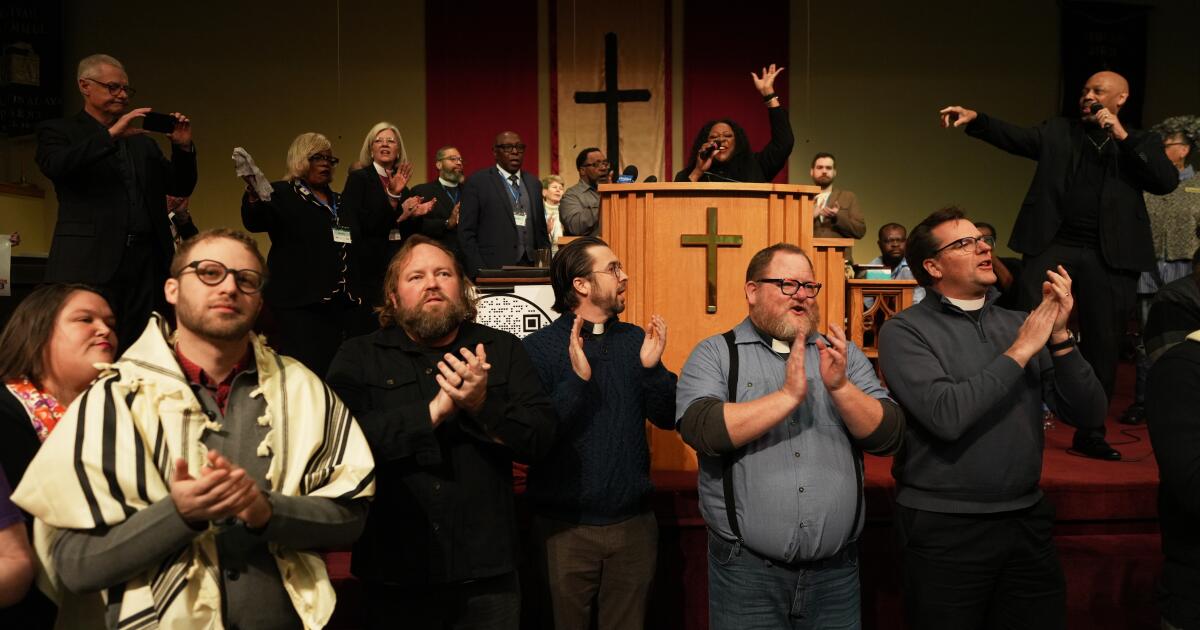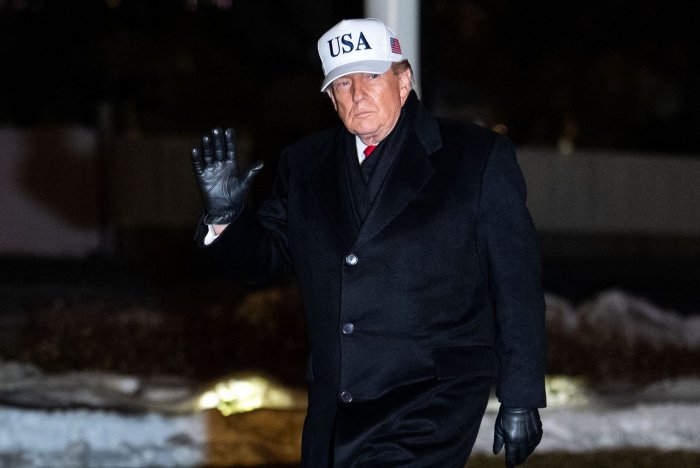Haiti’s transitional council hands power to US-backed prime minister | Politics News
Move comes after council tried to oust PM Fils-Aime and the US recently deployed warship to waters near Haiti’s capital.
Published On 7 Feb 2026
Haiti’s Transitional Presidential Council has handed power to US-backed Prime Minister Alix Didier Fils-Aime after almost two years of tumultuous governance marked by rampant gang violence that has left thousands dead.
The transfer of power between the nine-member transitional council and 54-year-old businessman Fils-Aime took place on Saturday under tight security, given Haiti’s unstable political climate.
Recommended Stories
list of 2 itemsend of list
“Mr Prime Minister, in this historic moment, I know that you are gauging the depth of the responsibility you are taking on for the country,” council President Laurent Saint-Cyr told Fils-Aime, who is now the country’s only politician with executive power.
In late January, several members of the council said they were seeking to remove Fils-Aime, leading the United States to announce visa revocations for four unidentified council members and a cabinet minister.
Days before the council was dissolved, the US deployed a warship and two US coastguard boats to waters near Haiti’s capital, Port-au-Prince, where gangs control 90 percent of the territory.
US Secretary of State Marco Rubio stressed “the importance” of Fils-Aime’s continued tenure “to combat terrorist gangs and stabilise the island”.
The council’s plan to oust Fils-Aime for reasons not made public appeared to fall to the wayside as it stepped down in an official ceremony on Saturday.
Fils-Aime now faces the daunting task of organising the first general elections in a decade.
Election this year unlikely
The Transitional Presidential Council was established in 2024 as the country’s top executive body, a response to a political crisis stretching back to the 2021 assassination of President Jovenel Moise.
It quickly devolved into infighting, questions over its membership, and allegations of corruption falling overwhelmingly short of its mission to quell gang violence and improve life for Haitians.
Just six months after being formed, the body removed Prime Minister Garry Conille, selecting Fils-Aime as his replacement.
Despite being tasked with developing a framework for federal elections, the council ended up postponing a planned series of votes that would have selected a new president by February.
Tentative dates were announced for August and December, but many believe it is unlikely an election and a run-off will be held this year.
Last year, gangs killed nearly 6,000 people in Haiti, according to the United Nations. About 1.4 million people, or 10 percent of the population, have been displaced by the violence.
The UN approved an international security force to help police restore security, but more than two years later, fewer than 1,000 of the intended troops – mostly Kenyan police – have been deployed. The UN says it aims to have 5,500 troops in the country by the middle of the year, or by November at the latest.



